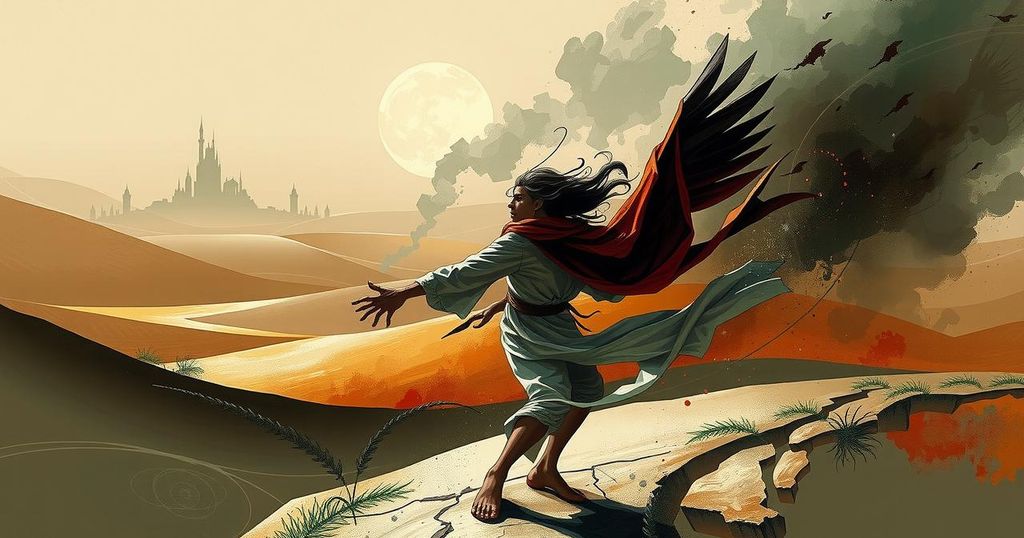The conflict in Sudan involves the Sudanese Armed Forces, led by General Abdel Fattah al-Burhan, and the paramilitary Rapid Support Forces (RSF), commanded by General Mohamed Hamdan Dagalo. Both factions are engaged in a brutal power struggle, resulting in ethnic violence and mass displacement. The United States has sanctioned both leaders for their roles in the humanitarian crisis that has unfolded.
In the enduring conflict in Sudan, the primary combatants are the Sudanese Armed Forces and the paramilitary Rapid Support Forces (RSF). As the army gained control of the Presidential Palace in Khartoum, the conflict intensified, leading to increased ethnic violence and the displacement of millions. Both factions originally cooperated to depose President Omar Hassan al-Bashir in 2019 but have since engaged in fierce clashes over their interests amid a troubled political transition.
The Sudanese Armed Forces, led by General Abdel Fattah al-Burhan, boasts superior troop numbers and advanced weaponry. Historically, they have wielded significant power and have a longstanding presence in the country’s political landscape. Burhan, who urged al-Bashir to resign, has faced challenges in maintaining operational control, as the RSF has proven to be agile opponents, with reports indicating that the army has sustained civilian casualties through indiscriminate shelling and air strikes.
General Mohamed Hamdan Dagalo, known as Hemedti, commands the RSF, which is thought to consist of approximately 100,000 personnel. Hemedti, who rose from a camel trader to a powerful militia leader, has built considerable wealth through gold mining and other enterprises. His forces have been adept at engaging the army, often employing unconventional tactics. The RSF has been accused of ethnic cleansing and targeted attacks against communities in Darfur, allegations that they have officially denied.
As hostilities escalated, both groups have gained international attention. The U.S. has imposed sanctions on both leaders, citing their roles in exacerbating the humanitarian crisis and committing atrocities. While the army has received covert support from regional powers, the RSF has linked themselves closely to the United Arab Emirates, amidst allegations of foreign arms support.
The conflict in Sudan remains deeply rooted in historical power struggles between the Sudanese Armed Forces and the Rapid Support Forces. Control over territory and resources continues to exacerbate violence, with severe implications for civilian populations. The international community has taken notice, implementing sanctions against both leaders due to their actions, which have resulted in widespread suffering and displacement within Sudan. A resolution to this conflict remains imperative for the restoration of peace and stability in the region.
Original Source: www.hindustantimes.com






